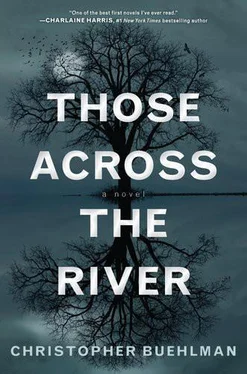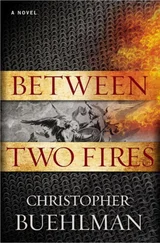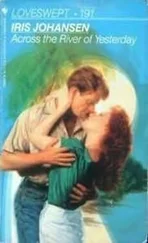Someone asked Old Man Gordeau if he was going to run the dogs after whoever had done this.
“Cain’t,” Old Man Gordeau said, his voice tight. “Sons a bitches burned em up. Roasted em right in the kennel. Goddamn them to hell.”
“You don’t believe in no hell.”
“I’m ready to build one to put them sons a bitches in.”
“You see em?”
“I don’t know what I saw.”
“Sounds like you saw somethin.”
“You’ll think I was shinin.”
“What’d you see, Gordeau?”
“Long hair. Some skinny-ass white woman with long hair. And a bare bottom, too. Least I think so. But she was gone so fast I’m not sure. I’m gonna put em in hell.”
And then he walked off and stared at the ground with his hands on his hips. He spat and watched it fall from his mouth. I had the curious idea that this was what he did instead of crying.
We sat around for some time with our muscles throbbing and our heads and stomachs sorely grieved, and then Sheriff Blake stood up to speak. He removed his hat, and for the first time I noticed how unflatteringly he was going bald; how much older and weaker he looked without his hat.
“If everyone could gather in and listen before you get to your homes. I know you’re tired. We all are, I guess. I want you to go home and get what rest comes to you tonight, and say your prayers and amens real good. Cause tomorrow, come mornin, right at sunup, I want all men who can handle a gun to bring their weapons to the town square. I know some of y’all got dogs, but leave em. We are goin into them woods past the river; we are goin quiet and we are goin in force. If there is squatters in them woods, we gonna find where they livin and give them some. I ain’t takin no badge this time, neither.”
His voice sounded sure, and he had said the right words, but he rubbed the front of his pants while he spoke.
Many of the men nodded.
“You damn right,” somebody said.
THAT NIGHT I had a Dan Metzger dream.
My dreams about the war come in several varieties, none of them pleasant, but some of the worst ones involve the death of my best friend, Dan Metzger, because they’re not just frightening; they’re heartbreaking. I can shake off the fear of death; I can even shake off the guilt of killing; but when I wake up from losing Dan again, I’m all hollowed out inside. I had such a dream one of the first times Dora spent the night, in my tight little bachelor’s apartment in Ann Arbor. I kept it together until I got to the kitchen, but then I cried for fifteen minutes after I broke a coffee cup. It says a lot for her that she didn’t run for the hills.
In this most recent dream, the shell walloped us and there we were crawling around, looking for his glasses, and him all busted up. Then some doughboys came and buried him right then and there, and I was trying to explain to them that his mother was going to be mad at me. What’s more, it wasn’t fair that Dan was in the hole because he never hurt anyone. Dan got his nose broken for telling on older kids who tortured a frog. Dan aimed up and shot over the Germans’ heads. Dan just wanted a wife who was nice to him, even if she wasn’t smart or pretty, and he was owed that. They just shoveled.
I woke up with Dora shaking me.
“Honey, honey,” she said, but so tired herself that her eyes weren’t open.
“I had a dream.”
“I know, my love. You’re home now.”
“Did I shout?”
“Yes.”
“What did I say?”
“You said, ‘Leave, go, let him up.’”
INEVER GOT back to sleep, then I decided that was all right and I got my service pistol out of the desk drawer and took it downstairs to oil it. When I say I took it out of the desk drawer, I should specify that I mean the desk drawer in the office, not the drawer of the nightstand. Eudora didn’t like guns in the house, but she was willing to tolerate them as long as the sanctity of the bedroom was respected. I had balked at that initially, but when she pointed out that I might wake up wrong from one of my nightmares and mistake her for Kaiser Wilhelm, I conceded.
It was good to clean the .45. It was good to keep my hands busy rather than dwell on what had happened the day before, or to consider the prospect of going into those woods. Drop the magazine out. Slide the rack back and check the chamber. Turn the bushing. Then say “goddamnit” under my breath when the spring pops the spring plug loose and it hits the kitchen floor. I was on my hands and knees looking for it with the oil lamp in my hand when I remembered looking for Dan’s glasses in the dream, and I wanted to curl up and sob, but I pushed that down and found the plug.
Several men were standing around in the town square when I got there at first light. Someone raised a hand to me as I approached and I saw that it was Buster Simms. People were standing near Buster because he was so big he made them feel better, as though he were too big to be hurt or to let hurt come to those who stood with him. His size made the lever-action rifle he carried look like a toy. I shook with Buster and Buster’s hand closed around mine like the larger of two nesting dolls. His grip was strong, but he held strength in reserve. Paul Miller used to shake hands putting some extra squeeze in it so it was clear who the bigger man was. When Buster shook he reined it in a little, as if the other man had offered him some fine porcelain thing that might crack if borne down upon.
Estel Blake came now and stood upon a bench so everyone could see him and he could see who had come. It was getting light enough to see the color in faces.
There were more than he wanted here. He sent Old Man Gordeau home because he had a bad cough, and Gordeau fought him on it until Estel pointed out that his hacking would make it impossible to get the drop on anybody. He sent home a young widower who had kids, and he tried to send Saul Gordeau home with his daddy but Saul wouldn’t have it.
“Now, Lester here is twenty and one and that’s alright, but you ain’t but seventeen and this might get rough. Probly it will.”
“Reckon it already has,” Saul said. “Sons a bitches burnt up my dogs and dug up my daddy’s uncle.”
He said it just like Old Man Gordeau would have and it got a yellow little laugh out of them.
“I’m just sayin you’re young for this and it don’t set well with me.”
“Sir, I might be young, but I don’t shoot young.”
I noticed the rifle Saul carried was an American Enfield, the doughboy’s rifle. My old rifle. Bolt action, six shots, deadly, deadly accurate in the right hands, and, since 1918, cheap. I later found out that no fewer than nine households in Whitbrow held copies of that rifle. After the war, a man in a navy peacoat had come around and sold them out of the back of his truck for ten dollars apiece. Harvey at the Drug Emporium had one, but never shot it. Hal the butcher kept his slung under the counter. It was the gun Tyson Falmouth had carried when he went to check on the pigs.
Saul looked like a child, but he was only a little younger than I had been when Uncle Sam had stuck an Enfield in my hands and nearly shut me in a coffin.
I had only been a passable marksman.
Not Saul.
Estel Blake assessed the slight blond boy who was standing with his feet planted, holding the big rifle like it was part of him.
“It’s true,” Lester said. “He’s better’n I am or ever will be. You remember that rabbit he hit on the run when we went huntin last year. You were joshin him how it was luck, but I’m here to tell you it wasn’t.”
“Alright, young man,” Estel said. “But if you change your mind out there and want to get on back, there ain’t no shame.”
Читать дальше












